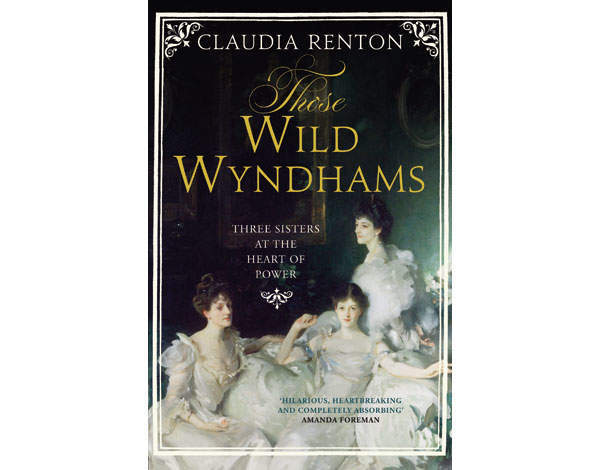

Those Wild Wyndhams: Three sisters at the heart of power
Claudia Renton
EX LIBRIS
Can it be said in any meaningful way that England any longer has a ruling class? Certainly, we still have a political class. The prime minister and leader of the opposition went to the same university and have followed similar pathways to government. Moreover, the combination of inherited wealth and the right kind of education still counts for something in this land.
Finally, we do still possess an aristocracy, although these days — despite their great wealth — our dukes, marquesses and earls tend to maintain a low profile. They cannot really be said any longer to ‘govern’ us.
A hundred years ago, things were different. Just how different can be glimpsed in the pages of Claudia Renton’s fascinating book about the Wyndham sisters, a trio of late-Victorian society belles whose connections, through marriage and by love affair, constituted a veritable web of power at the heart of the British establishment.
The political establishment at that time was divided between Liberal and Tory, and the principal families habitually intermarried. In a significant way, everyone of importance belonged to the same caste.
Granddaughters of the Earl and Countess of Egremont, the Wyndham girls grew up in a notionally Tory environment. Mary, the eldest of the three, married the heir of the Earl of Wemyss, a Scottish peer of fabulous wealth. Meanwhile, her lifelong lover was Arthur Balfour, nephew of the Tory prime minister Lord Salisbury. In the early years of the 20th century he was to become prime minister himself (a charming if not a particularly effective one).
The connection of Pamela, the youngest sister — reputedly the most beautiful of the three — was with the Liberals. She was married to Edward Tennant, whose sister Margot married the future Liberal prime minister Asquith. The connections with Liberalism didn’t stop there. Earlier, she had been engaged to the heir of the Marquess of Queensberry. Like his brother, Lord Alfred Douglas, this man turned out to be homosexual, and shot himself. His lover, it was said, was another Liberal prime minister, the Earl of Rosebery.
None of these differences of political allegiance prevented the sisters from liking each other or staying in each other’s houses. They were ‘The Souls’ after all (the name they christened themselves): an inner elite. Their country mansions — Clouds, Stanway, Babraham, Gosford — form an essential backdrop to the tale: one of comfort and ease, buffered by a retinue of servants.
Renton (a barrister by profession — this is her first book) tells the tale expertly and sympathetically. The influence the sisters exerted was of necessity ‘behind the scenes’ — none of the sisters had much time for the suffragists — but it is the skill of the book to show that they were no less intelligent than their menfolk in assessing the affairs of the land, and in making shrewd, helpful judgements about politics.
Eccentric characters enliven the pages: Wilfred Scawen Blunt, for example. A kinsman of the family, he was a handsome ‘anti-imperialist’ adventurer who dressed in Arab clothing and lived for part of the year among Bedouins. When he wasn’t in Egypt he made himself at home with the Wyndhams.
Years before our story begins, he had seduced their mother; now he began to fix his attention upon Mary. Renton’s description of the episode in which he lures her off to an oasis in the desert and charms her into bed under the noses of his wife, the governess and a pack of assorted children almost defies belief in its recklessness and contempt for bourgeois mores. Yet the incident happened; indeed, a child was conceived out of the adventure.
The boy at issue, Yvo, grew up to face the sacrifices of all of his generation in the Great War. A nineteen-year-old platoon commander, he was killed leading his men over the top. A year later his older brother, Lord Elcho, an officer with the Gloucesters, died in a skirmish in Palestine. Their cousin Edward (‘Bim’), Pamela’s son, was shot dead by a sniper at a late stage of the battle of the Somme.
That war put an end to the influence of the Souls. New forces were awake in society. Renton’s book, which skilfully commemorates a pre-revolutionary douceur de vivre vanished now beyond recall, ends on a suitable note of sobriety.






